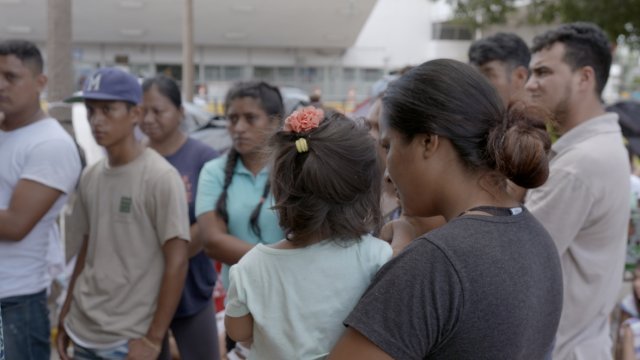This video is part of Newsy's series "Waiting South of the Border."
Hundreds of Central American migrants live in this makeshift shelter, right by the international bridge that divides Mexico and the U.S. — or Matamoros, Mexico, and Brownsville, Texas. Most of the migrants here tried weeks ago to enter the U.S. and seek asylum. But the U.S. returned them all to Mexico, asking them to wait here until their day in U.S. court weeks or months later.
That's because Brownsville/Matamoros is one of five border areas where the Trump administration is implementing the Migrant Protection Protocols, better known as the Remain in Mexico program. The program has been expanding fast recently. More than 40,000 migrants have been forced to wait in Mexico while their removal proceedings play out, according to the White House.
Immigrant advocates say the program places migrants, including single women and young children, in dangerous Mexican border cities.
But the administration says forcing migrants from Central America to wait in Mexico to learn whether they qualify for asylum will "decrease the number of those taking advantage of the immigration system."
And the reality is the majority of migrants will likely lose their case and never make it to the U.S. That's based on the historically high asylum denial rates in immigration courts. To make things worse for the migrants, new asylum restrictions that the Supreme Court has just allowed the government to enforce — for now — will bar most of them unless they can prove that they applied for asylum in another country on their way to the U.S.
But all of that doesn't matter to the people Newsy talked to in the Matamoros shelter. They told Newsy they think they'll win their case because God is on their side and because, they say, they have real persecution fears in their home countries. Some migrants also told Newsy that if immigration proceedings become too adversarial, they might consider illegally crossing the Rio Grande instead.


